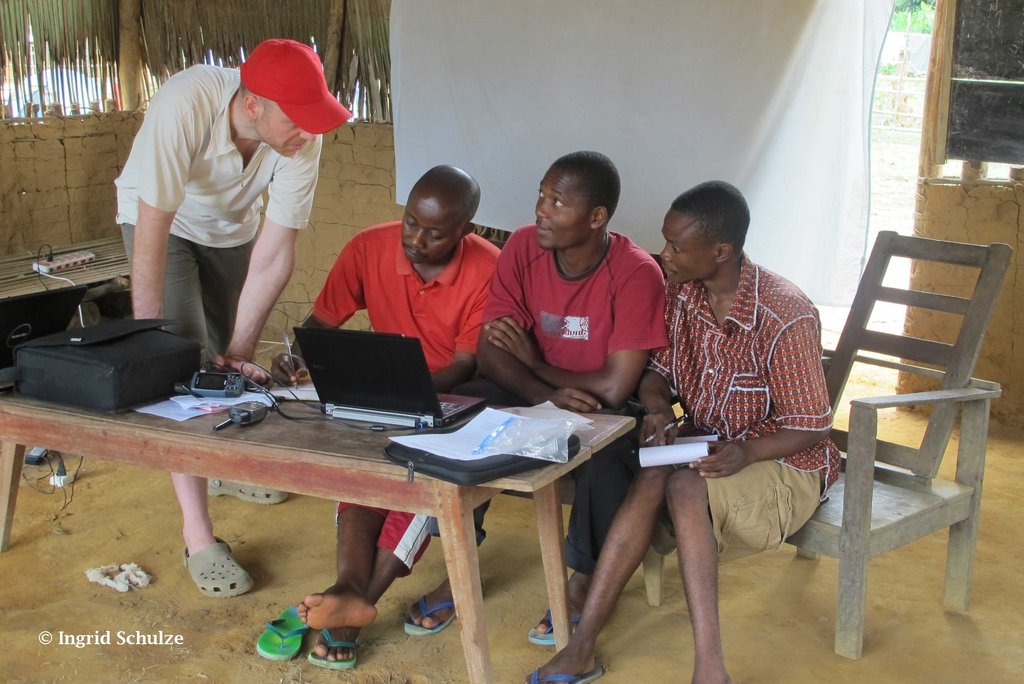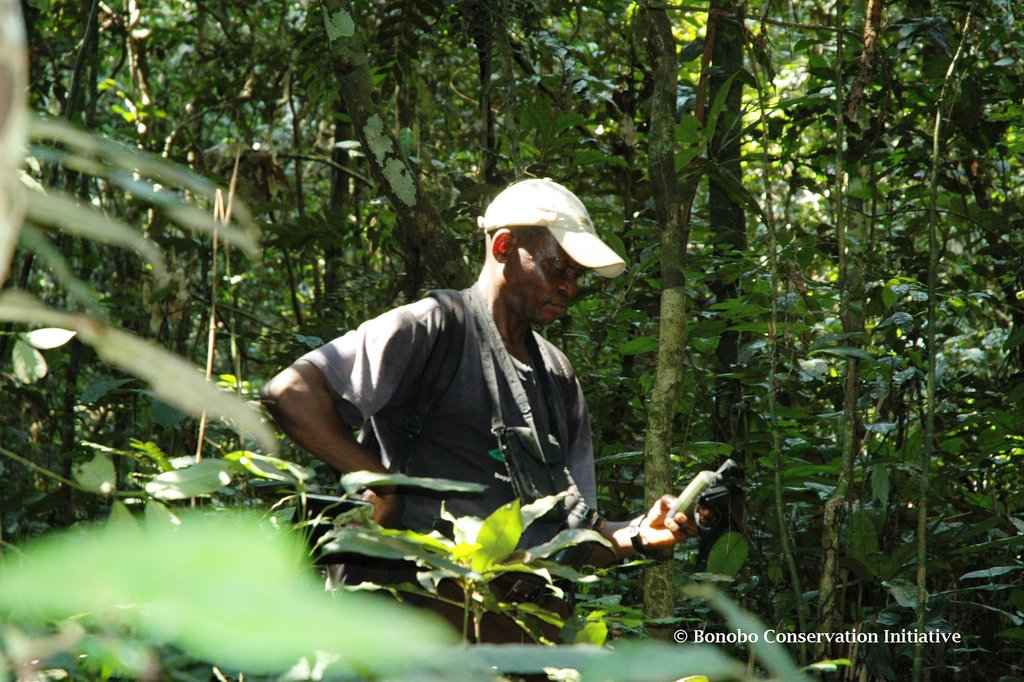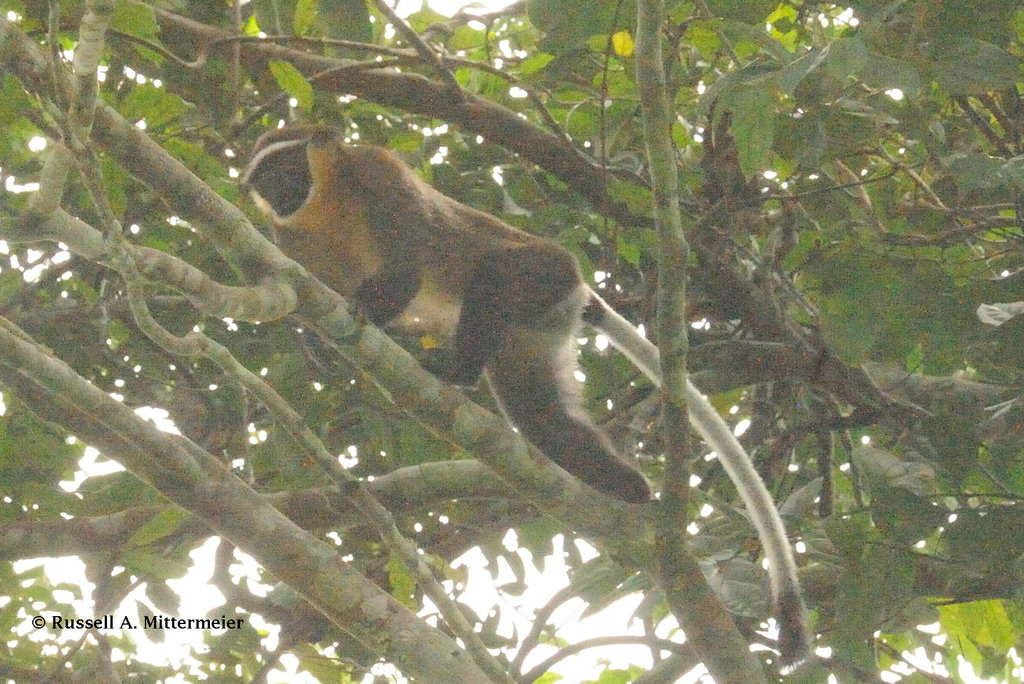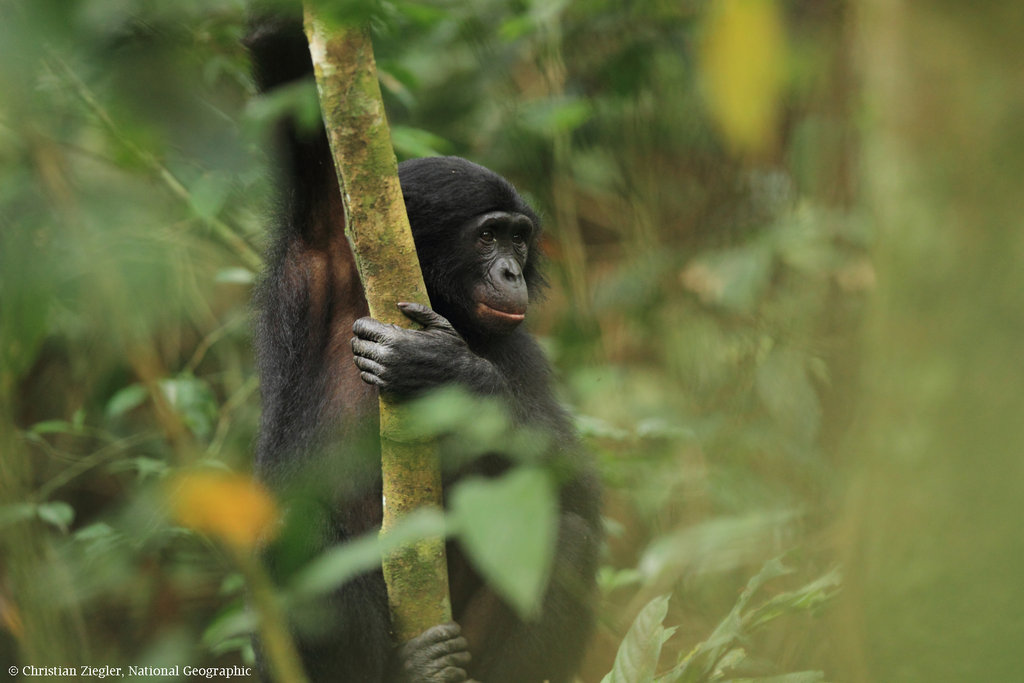By Rebecca Bossen | Communications Manager
Bonobo conservation efforts have often been hampered by lack of information. To better understand bonobos and their habitat, BCI and partners conducted an extensive survey of the Kokolopori Bonobo Reserve, thanks to support from the USFW Great Ape Conservation Fund. The results are enlightening, and they point the way to more effective and efficient protection strategies.
Scientists from the Max Planck Institute provided training in standard scientific methodologies to local survey teams. The teams then conducted a thorough census of the Kokolopori Reserve using these techniques. Smaller scale surveys have taken place previously, and this most recent survey—the first to cover the entire reserve—has yielded a wealth of new information. Of all of the discoveries, perhaps the most exciting is the evidence of a thriving bonobo presence in the reserve. Previous estimates had put the population at around 1000 bonobos, and this new research raises that estimate to 1800, making the Kokolopori Reserve home to one of the largest bonobo populations discovered to date. In addition to bonobo sightings, monitoring teams reported sightings of the rare Salongo monkey (Cercopithecus dryas), a critically endangered species never studied outside of Kokolopori.
As much as the survey highlighted the species that live in Kokolopori, it also revealed the threats to their survival. Direct encounters with hunters took place on the periphery of the reserve to the south and east. River access points were hotbeds of poacher activity, as bushmeat is most readily transported on the water. These findings, though troubling, point the way to future conservation strategies. More eco-guards are needed in these areas to ensure the continued wellbeing of all of the animals living within this vital region of rainforest.
BCI, local partner Vie Sauvage, and the newly trained field teams continue to monitor the reserve and gain invaluable information about the Kokolopori bonobos, other key species, and overall biodiversity. The scientific training provided by the Max Planck Institute will continue to bolster the local Congolese communities' ability to manage and protect the forests that they share with bonobos.
As always, none of our work would be possible without your support. Thank you for all that you do, and please remember to spread the word!
Project reports on GlobalGiving are posted directly to globalgiving.org by Project Leaders as they are completed, generally every 3-4 months. To protect the integrity of these documents, GlobalGiving does not alter them; therefore you may find some language or formatting issues.
If you donate to this project or have donated to this project, you can receive an email when this project posts a report. You can also subscribe for reports without donating.
Support this important cause by creating a personalized fundraising page.
Start a Fundraiser


